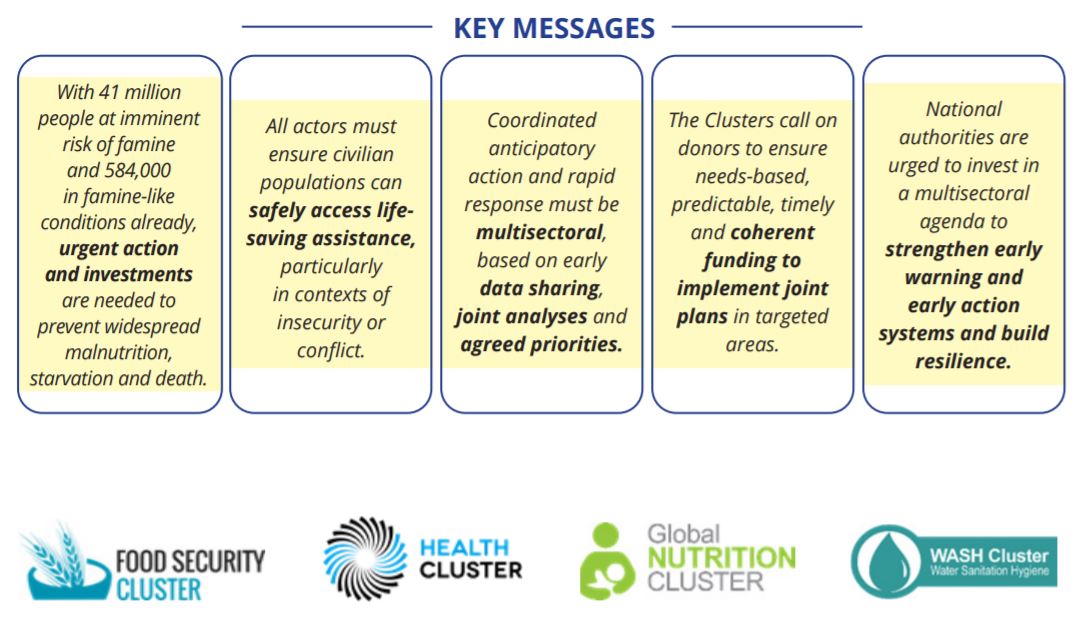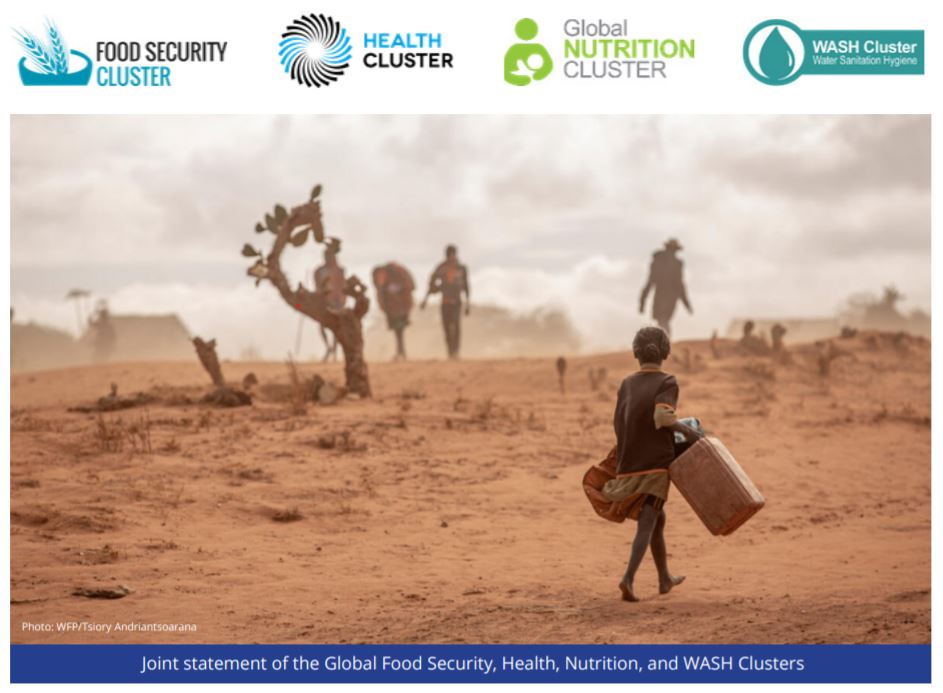
Famine and food crisis
Urgent and coordinated action needed to avert wide-scale catastrophe
23 september 2021
In 2021, 41 million people across 43 countries are at imminent risk of famine* without urgent funding and humanitarian access – a drastic rise from 27 million in 2019. The global hunger crisis is clearly reaching a tipping point,and the window to avert famine and devastatingly high levels of acute hunger in multiple countries is closing fast. Among the most at risk are 584,000 people facing famine-like conditions in Ethiopia, Madagascar, South Sudan and Yemen**, with Nigeria and Burkina Faso also of extreme concern. Just one more shock could push them over the edge.
Multiple factors are driving today’s levels of severe hunger and malnutrition, primarily protracted armed conflicts, climate change, and economic shocks exacerbated by the COVID-19 pandemic. Water scarcity and extreme weather such as droughts and floods wreak havoc on vulnerable lives and livelihoods, while those caught in conflict often cannot access food, water or medicine. In these conditions, children under five years of age and pregnant and lactating women are at particularly high risk, especially those already in poor health.
Urgent action and increased investments are needed now to prevent widespread malnutrition, starvation and death. We know what happens when the international community responds too late: waiting until famine has been declared to scale up the response imperils millions already facing a crisis. The 28 million people globally in Emergency food insecurity (IPC 4) are already on the cusp of catastrophe. Without adequate food, health and
nutrition services, safe water and sanitation, the risk of famine can skyrocket; the developmental, economic, social and health repercussions can be equally devastating and long-lasting.
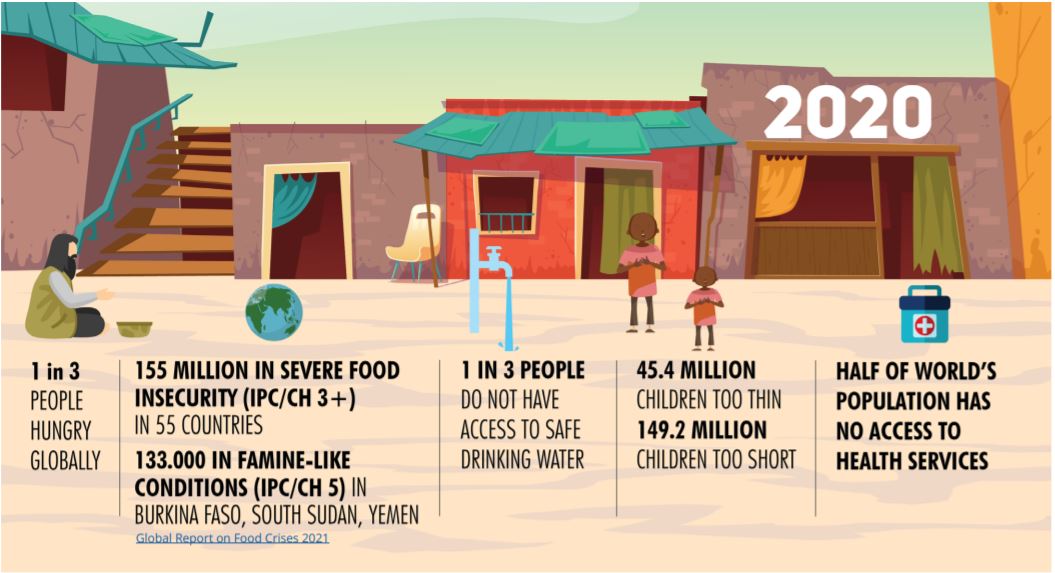
Our anticipatory action and rapid response must therefore be multisectoral, based on early data sharing, joint analyses and a coordinated approach: no single sector or intervention can prevent a crisis from becoming a famine, but combined our impact will be far more targeted, pre-emptive, and effective.
The Global Food Security, Health, Nutrition, and Water, Sanitation and Hygiene (WASH) Clusters are scaling up our combined support to partners in the field with improved coordination, programming capacity and quality services to prevent, respond to, and recover from famines. The more aligned our priorities, the better prepared we are, and the earlier we act, the more lives we save.
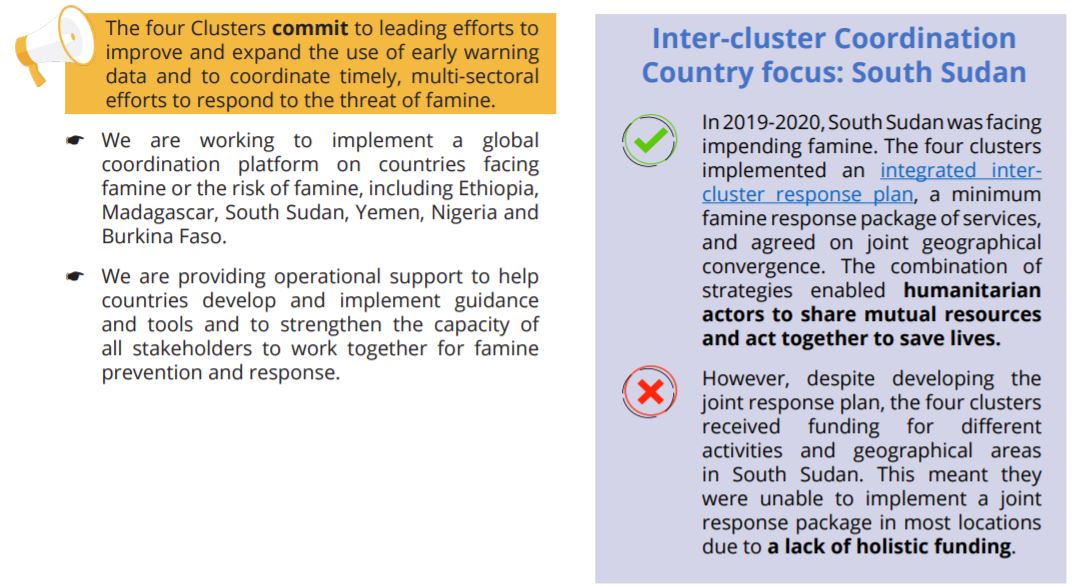
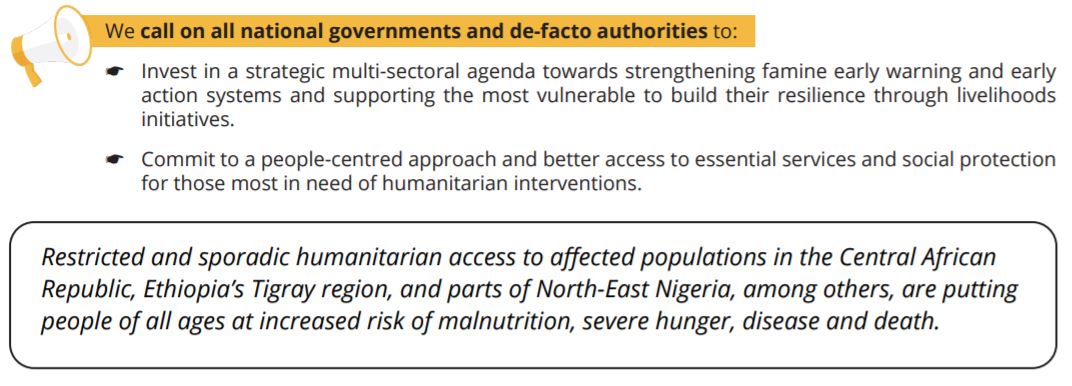

The Global Food Security, Health, Nutrition, and WASH Clusters are united in calling for solidarity in a joint response and across our network of partners. Together, we must act on our moral duty to meet the needs of those in crisis and work actively to prevent them from spiralling into famine.
